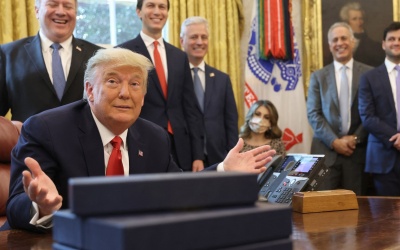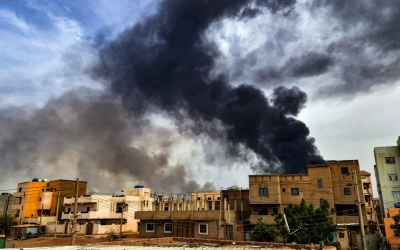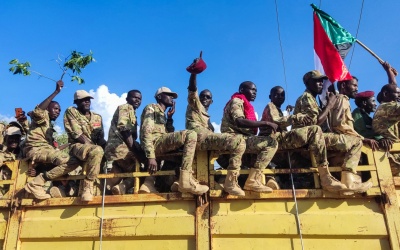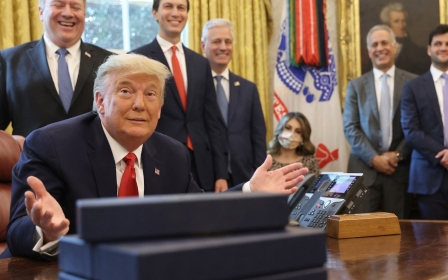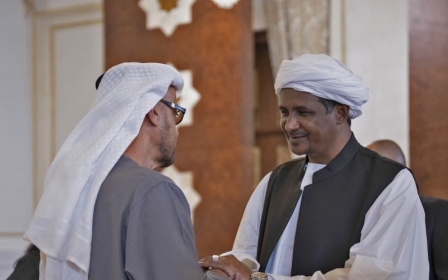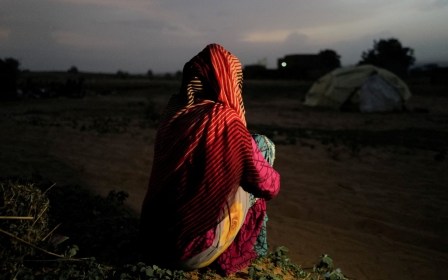Sudan: French weapons used in conflict in violation of UN embargo, Amnesty says
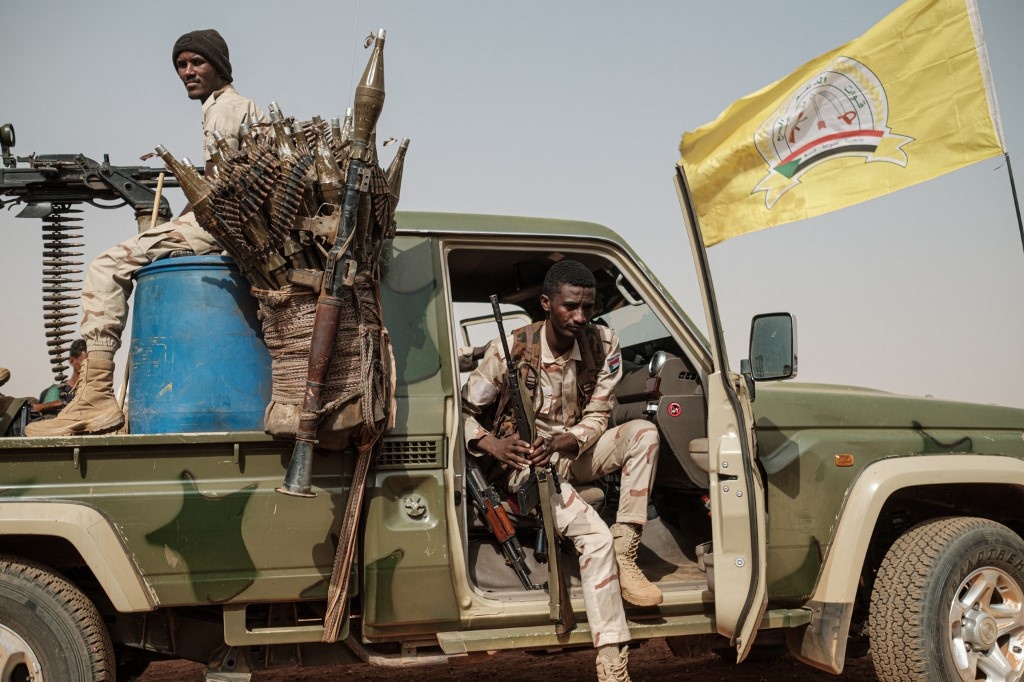
French-manufactured military technology incorporated into armoured vehicles made by the United Arab Emirates is being used on the battlefield in Sudan by the paramilitary Rapid Support Forces (RSF), in what likely constitutes a violation of a UN arms embargo, Amnesty International said in a new investigation on Thursday.
The Galix System - made by Lacroix Defense and jointly designed with Nexter (now KNDS France) - is a defence technology for land forces that releases decoys, smoke and projectiles to counter close-range threats.
In pictures shared on social media and verified by Amnesty, the Galix System is visible on several Nimr Ajban armoured personnel carriers (APCs) manufactured in the UAE, which have been destroyed or captured by the Sudanese Armed Forces (SAF).
"The Galix System is being deployed by the RSF in this conflict, and any use in Darfur would be a clear breach of the UN arms embargo," Agnes Callamard, Amnesty International's secretary general, said.
France is bound by international, regional and national laws to prohibit the export of arms where there is a substantial risk that the arms could be used to commit or facilitate a serious violation of international human rights or humanitarian law.
New MEE newsletter: Jerusalem Dispatch
Sign up to get the latest insights and analysis on Israel-Palestine, alongside Turkey Unpacked and other MEE newsletters
A United Nations arms embargo has been in place on Sudan's Darfur region since 2004 and a European Union arms embargo on the whole of the country has been implemented since 1994.
The RSF and the Sudanese army have been at war since April 2023, in a conflict that has turned the country into the world's largest humanitarian catastrophe by scale.
More than 11 million people, nearly 30 percent of the population, have fled their homes, while more than 23,000 people have been killed and 33,000 wounded, of which a substantial number are civilians.
Meanwhile, millions of Sudanese are facing acute hunger or are at risk of famine.
The RSF has been accused of a wide range of atrocities against civilians, including mass rape and genocide against the Masalit community.
According to a UN inquiry published at the end of October, the paramilitary group's actions may amount to war crimes and crimes against humanity, including torture, rape, sex trafficking, and persecution based on ethnic and gender grounds.
Record of controversial arms exports
Middle East Eye has reported extensively on how the UAE has become the RSF's main regional backer. The country has a long track record of breaching UN Security Council arms embargoes, including in relation to Libya and Sudan.
France and the UAE have a long-standing partnership in the defence sector. The French parliamentary 2024 report on arms export indicates that French companies were responsible for delivering an estimated €2.6bn ($2.74bn) in military equipment to the UAE between 2014 and 2023.
Lacroix Defense has an established presence in the UAE, having set up a joint venture with Emirates Defense Technology as early as 2015. Nimr Ajban APCs have been equipped with the Galix system since at least 2017, Amnesty reported.
"If France cannot guarantee through export controls, including end-user certification, that arms will not be re-exported to Sudan, it should not authorise those transfers," the organisation said.
Furthermore, all companies have a responsibility to respect human rights, Amnesty stressed.
"This responsibility requires companies to conduct human rights due diligence throughout their entire value chain - from the point of origin to the end user - to identify, prevent, and mitigate any actual or potential involvement in human rights abuses."
France has repeatedly been singled out for its exports of military equipment and arms despite major risks that they could be used to commit or facilitate serious violations of international law.
It has notably delivered war materials to Saudi Arabia and the UAE despite their involvement in the conflict in Yemen, and has been a major exporter of weapons to Egypt, in spite of Cairo's poor human rights record and its crackdown on peaceful activists on the pretext of fighting terrorism.
More recently, in the context of Israel's war on Gaza, Paris has been accused of lack of transparency in its arms exports to Israel and of failing to provide evidence that French military materiel is not being used against Palestinian civilians.
'Immense human suffering'
Amnesty is calling for the UN Security Council to expand its arms embargo on Darfur to the rest of Sudan and to strengthen its implementation and verification mechanisms.
"Amnesty International has already shown how the constant flow of arms into Sudan is causing immense human suffering," Callamard said.
"All countries must immediately cease direct and indirect supplies of all arms and ammunition to the warring parties in Sudan. They must respect and enforce the UN Security Council’s arms embargo regime on Darfur before even more civilian lives are lost."
Earlier this week, the UN Security Council was told in a high-level briefing that recent days had seen some of the most extreme atrocities, including sexual violence and indiscriminate killings, since the beginning of the war.
Rosemary DiCarlo, the UN’s under-secretary-general for political and peacebuilding affairs, said the RSF had committed mass killings of civilians. She laid the blame for the recent uptick in violence on both warring parties, and the "considerable external support" they were receiving.
"To put it bluntly, certain purported allies of the parties are enabling the slaughter in Sudan. This is unconscionable, it is illegal and it must end," she said.
Amnesty International contacted Lacroix Defense, KNDS France and the French Secretariat-General for National Defence and Security for comments about the identification of the Galix System in Sudan but had not received any response by the time of publication.
Middle East Eye delivers independent and unrivalled coverage and analysis of the Middle East, North Africa and beyond. To learn more about republishing this content and the associated fees, please fill out this form. More about MEE can be found here.


